-
Reasons to Work with Southern Waste & Recycling
Every business produces waste at one point or another. As your business weighs its waste management needs, you should find a recycling company in Atlanta that offers the right services with the right attitude. Southern Waste & Recycling has years of experience providing our Atlanta clients with a wide range of waste management services, including roll-off dumpsters, industrial waste management, junk removal, and more.
At Southern Waste & Recycling, we provide transparent and professional service. We comply with all state and local guidelines, and all our waste management professionals have received the proper training. We also work hard to execute our clients’ day-to-day requirements and help streamline their logistics as much as possible. Throughout the project, our team members provide analytical data and reporting; and once the project is done, we offer our clients simplified and consolidated invoicing. When you work with us, we will ensure that all of your waste management needs are met, and we’ll do it with a smile on our face.
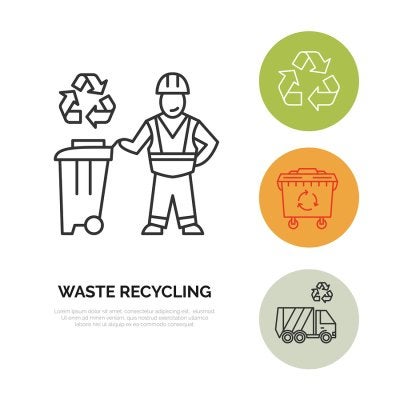
-
Methods of Industrial Waste Management
If you own a company that generates hazardous or industrial waste, it’s crucial that you think about the safest methods of waste management in Atlanta . The most effective methods of industrial waste management are ones that aim to reduce, reuse, and recycle when possible, and that are guaranteed to cause no harm to the environment. Here is a look at the best methods of industrial waste management in your area.
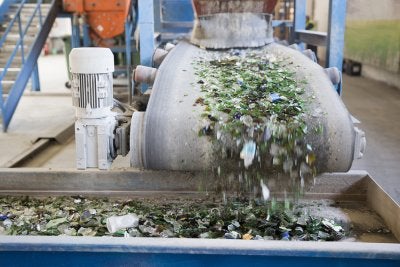
Segregation and Recycling
Much of the waste that is generated by your company’s production, shipping, and packaging needs is not reusable or compostable, but it is recyclable. The first step in your industrial waste management program is to identify which items can be recycled, and set up recycling bins or dumpsters into which they can be sorted. Most recycling centers can handle glass, paper, and plastic recycling. Many can also handle scrap metal recycling, cardboard recycling, food waste recycling, and electronics recycling. You must segregate and separate your recycling from your hazardous waste, compostable waste, and non-hazardous solid waste.
Use of Landfills
Landfills are one of the most common ways to dispose of waste in America. The only waste that should be sent to landfills is that which is non-hazardous, non-recyclable, and non-compostable. When waste is sent to a landfill, it is confined to a small area, compacted when necessary, and then buried in the earth. As the waste decomposes, it releases gases that can be converted to natural gases used for power and fuel. Landfills are cost-efficient and are designed to minimize the harm done to the environment.
Composting
The composting process turns organic waste into fertilizer that can be used to nourish plants. Most food waste can be composted, and even unsafe organic items can be turned into safe composting. You can compost food waste, leaves, newspaper, very small pieces of cardboard, straw, and sawdust. Compost is then added to soil to provide nutrients and encourage growth. Composting is one of the most effective ways to reuse and recycle waste.
-
Understanding Paper Recycling
If you have recently implemented a recycling program for your company, you may be interested in learning more about paper recycling in Atlanta . Any paper waste that your company generates can be collected in recycling bins, picked up by your waste management company during your regular trash pickup, and sent to your local recycling center. This paper is then sorted, cleaned, and graded at the recycling center, and is then sent to a paper mill.
Watch this video to learn more about the paper recycling process. After recyclable paper is sent to a paper mill, it is turned into pulp, and any non-recyclable elements, such as staples, are removed. It may then be bleached. Recycled paper may be turned back into cardboard, paper, glass, cans, food and drink cartons, plastic bottles, or clear sacks.
-
Improving Waste Management Strategies at Your Restaurant
If you’re interested in making your restaurant greener, you should look into improving your waste management, recycling, and waste disposal in Atlanta . A comprehensive and effective waste management program is key to ensuring that you save money and protect the environment. Here are some ways that you can improve the waste management strategies at your restaurant.
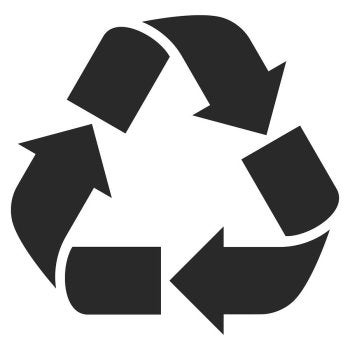
Sustainability and Zero Waste Initiatives
The best and most sustainable waste management program is one that minimizes your environmental impact while reducing your waste management and waste disposal costs. Your waste management company should focus on reducing, reusing, and recycling whenever possible. You can not only reduce the cost of your waste disposal, but also reduce the amount of waste that is generated in the first place. One of the ways that you can do this is by implementing a zero waste initiative. A zero waste initiative is a commitment to reduce the amount of waste that is sent to a landfill for waste disposal. This is achieved by investing in single-stream recycling and organics recycling.
Single-Stream Recycling
Recycling centers that offer single-stream recycling do not require companies to sort their recyclables into separate recycling bins or dumpsters before pickup. Instead, all recyclables can be put into the same recycling bin or dumpster, and they are then picked up by your waste management company and sorted at the recycling center. This makes it easier for employees and guests to participate in your restaurant’s recycling program, and it also saves the company money and labor trash removal, junk removal, and waste disposal.
Organics Recycling
One of the most voluminous types of waste that restaurants produce is organic waste, or food waste. Rather than throwing food and food byproducts away to be sent to a landfill, you can participate in your recycling center’s organics recycling program. Organic waste will be composted and then used as fertilizer and soil nutrients. Food waste that can be composted includes fruits, vegetables, meat, poultry, seafood, animal bones, shells, bakery items, eggs, paper egg cartons, milk, juice, paper juice cartons, plants, cut flowers, coffee grounds, coffee filters, tea bags, paper products, ice cream, yogurt, and cottage cheese.
-
Examining Common Types of Manufacturing Waste
Manufacturing facilities rely on efficiency and streamlined production methods in order to create their products. However, even the most efficient manufacturing plants are bound to generate some form of waste. By working with a company offering waste management and recycling near Atlanta, you can reduce the amount of materials that you discard during the manufacturing process, while also making sure that your waste is disposed of in a safe and responsible manner. If you are creating a waste disposal plan for your manufacturing plant, read on to learn more about the most common types of manufacturing waste.
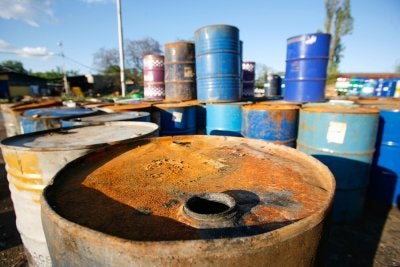
Solid Waste
Solid waste is a term that describes any paper, plastic, metal, or carbon based materials that are left over after the manufacturing process is completed. Some examples of solid waste include cardboard, scrap metals, or packaging materials. While some solid waste must be thrown in a dumpster, other forms of waste can be easily recycled. Recycling paper and cardboard can help you cut back on the carbon footprint of your manufacturing process.
Chemical Waste
Depending on the nature of the manufacturing process, certain facilities may generate large amounts of chemical waste. Unlike solid waste, which can be placed in a bin for disposal, chemical waste must be contained using special disposal methods. Many types of chemicals can cause environmental harm when they are not disposed of in a proper manner. Your waste management specialists can advise you on best chemical waste disposal practices for your business.
Toxic Waste
Toxic waste is an unavoidable byproduct of many manufacturing methods. While you may not be able to reduce the toxicity of certain kinds of waste, you can make sure that any toxic substances that are created in your plant are not allowed to contaminate the surrounding environment. Toxic waste disposal and management is regulated by governmental organizations, so you will want to make sure that your disposal plan is on par with environmental regulations for your county or state.
-
What You Need to Know About Industrial Waste Management
Our society relies on industrial manufacturing to produce the many appliances, materials, and other items that we use on a day to day basis. As the owner or operator of an industrial company, it is your responsibility to make sure that your business is operating in accordance with industrial waste management regulations. A company that specializes in waste near Atlanta will be able to help you reduce, reuse, recycle and ensure that any environmentally toxic materials that are created in your facilities receive proper disposal. Let’s explore some important guidelines that every business owner should know about industrial waste management.
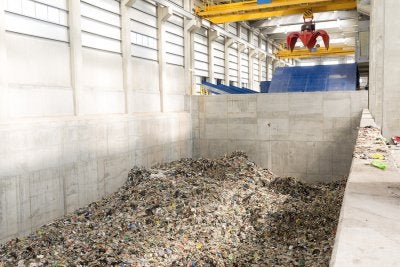
Waste separation is necessary.
While it may be tempting to save time and energy by disposing of your waste materials in the same container, it is actually very important to create a waste separation plan for your industrial operation. Metals, plastics, and organic materials decompose at very different rates. By taking the time to separate waste by type, you can make sure that each type of material heads to the correct disposal facility.
Toxic materials should be decontaminated or contained.
Certain industrial processes may create waste materials that have a toxic effect on the environment. When you are creating an industrial waste management plan, you will want to work with a team of professionals to create a solution for decontaminating or containing your hazardous waste. Improper disposal of harmful substances is a very serious crime that can impact the future success of your business as well as the environment around you.
Recycling and recovery can help reduce costs.
Your industrial waste management plan can also include provisions for recycling or reclaiming materials. If you work with metals, for example, you may want to repurpose scrap metals for other uses. Recycling is a great way to reduce your overall waste output, while also helping to cut down on your overall expenses. If you have questions about how to create an industrial waste management plan, be sure to contact a waste disposal company that serves your area.
-
A Look at Waste Management Planning for Senior Living Facilities
Like many organizations, senior living facilities can generate a significant amount of waste. However, you are likely to find that there are ways to streamline and reduce the costs of your waste disposal system. If you are looking for better strategies for waste management in Atlanta, consider the following in your planning:
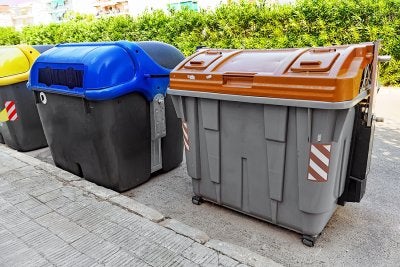
Taking Advantage of Recycling Opportunities
Incorporating a recycling program into your waste management system can give your establishment a greener image, and can also save you money on taxes and reduce your waste disposal costs. Your senior living facility probably goes through a significant amount of materials and supplies that can be easily recycled. When you participate in a local recycling program, your facility will be provided with recycling bins to place where you deem appropriate. Having the opportunity to recycle can boost the morale of your residents and staff, and the use of recycling bins can cut down on the facility’s waste generation.
Considering Alternatives for Food Waste Management
The amount of food waste that your facility generates may account for a large portion of your total waste disposal costs. Leftovers from meals, fruit and vegetable peels, and coffee grounds, for instance, can all weigh a great deal and contribute to a significant amount of what you end up tossing out. Today, establishments that provide food services are benefiting from participation in organic waste recycling programs. This earth-friendly waste disposal option can prove to be a highly advantageous aspect of your waste management planning. Organic recycling programs accept everything from meat and seafood to produce and paper products.
Ensuring Proper Waste Disposal Training for Employees
Educating your senior living facility’s staff about waste disposal is an essential aspect of waste management planning. Some of your employee training should include the proper disposal of sharps, the system for labeling and bagging hazards, and what qualifies as regulated waste. Additionally, educating your staff about the appropriate use of regular and organic waste recycling can help promote the success of these programs.
-
Simplifying Supermarket Waste Management Strategies
Waste management strategies are essential for boosting your supermarket’s profitability and promoting a green image. Adopting practical programs into your waste disposal system can reduce what your establishment sends to the landfill as well as your costs for trash removal in Atlanta. Whether your supermarket is a standalone corner store or part of a national chain, simplifying your waste management should be a priority.
One of the simplest ways to reduce the amount of waste your store generates it to adopt a recycling program. With bins in place throughout your market, your employees and customers will both appreciate the option to recycle their used bottles and containers. Single-stream recycling programs collect all recyclables into mixed bins to offer your business a recycling system that is easy to use and maintain.
Another waste management strategy that is gaining popularity and availability is organic waste recycling. This type of program collects organic materials such as meat, dairy, produce, and plants to be processed into compost. With a system in place to make better use of your supermarket’s food and floral waste, you will increase your overall recycling amounts and can drastically reduce your waste generation.
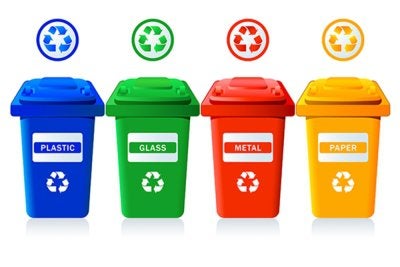
-
Universal Waste Recycling: Get the Facts
When people have fluorescent bulbs or electronics to dispose of, they may not realize that these objects do not belong in landfills. Universal waste recycling serving Atlanta offers manufacturers and businesses a way to properly dispose of a variety of hazardous materials.
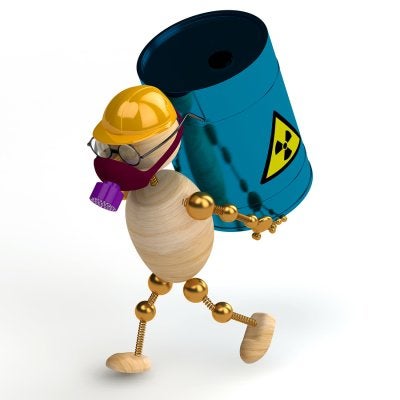
The Nature of Universal Waste Recycling
The EPA’s universal waste program promotes the responsible collection and recycling of particular types of waste that contain certain hazardous materials. The program helps ensure that fewer of these materials end up in landfills where they are unregulated and can contaminate the environment.
The Importance of Universal Waste Recycling
Universal waste recycling systems make it easier for consumers and retailers to dispose of and transport these materials. Universal waste recycling is designed to streamline the waste disposal management standards for certain types of materials. These programs help to protect the local population and wildlife from the harmful effects that improper hazardous waste disposal may cause. When you choose to properly discard universal waste materials, you help keep toxins like mercury from leaking into the ecosystem. Additionally, because the mercury inside these objects can frequently be recycled and reused, this prevents the need for obtaining as many new resources from the environment.
The Guidelines for Universal Waste Recycling
The universal waste program applies to four types of waste: pesticides, batteries, mercury lamps, and mercury-containing equipment. Companies that participate in the program can be either small or large quantity handlers of universal waste, universal waste transporters, or universal waste destination facilities.
The Use of Universal Waste Recycling
By knowing the importance of proper waste disposal, you can help do your part to protect the environment and your community. Consumers, businesses, manufacturers, distributors, and retailers should all be aware of the strict guidelines that are in place for the disposal of hazardous materials and seek the necessary means for their disposal. To learn more about the universal waste regulations for your area , you can visit the Environmental Protection Agency’s website.
-
Can Mercury Be Recycled?
While many people realize the importance of recycling their paper and plastic waste, not everyone knows that their electronics should be recycled in Atlanta as well. Items that contain mercury can and should be recycled to ensure that the mercury is properly handled and confined, and so fewer new materials need to be taken from the environment.
Watch this video to learn more about recycling mercury. When items containing mercury are improperly disposed of, they can release dangerous vapors that are harmful to people, wildlife, and the environment. If you need to get rid of an item that may contain mercury, contact a local waste disposal company to learn how you can safely discard it.
RECENT POSTS
categories
- Uncategorized
- Waste Management Atlanta
- Waste Disposal and Recycling
- Hazardous Waste Disposal
- Chemical waste removal
- solid waste removal
- R3 Program
- Sustainable Organizations
- Sustainable Waste Removal
- Commercial Waste Removal
- Materials Management Program
- Dumpster Rental
- Roll Off Dumpsters
- Construction Site Waste Removal
- Sustainability
- Recycling in Atlanta
- Industrial Recycling
- Industrial Waste Removal Services
- Southern Waste & Recycling
- Waste Removal Atlanta
- Waste Specialists
- Atlanta
- Infographic
- Front Load Dumpsters
- Rear Load Dumpsters
- Reusable Electronics
- Dump Truck Atlanta
- Recyclable Electronics
- Trash Compactors
- Recycling
- Recycling Program
- Office Recycling
- Metal Recycle
- Electronic Waste
